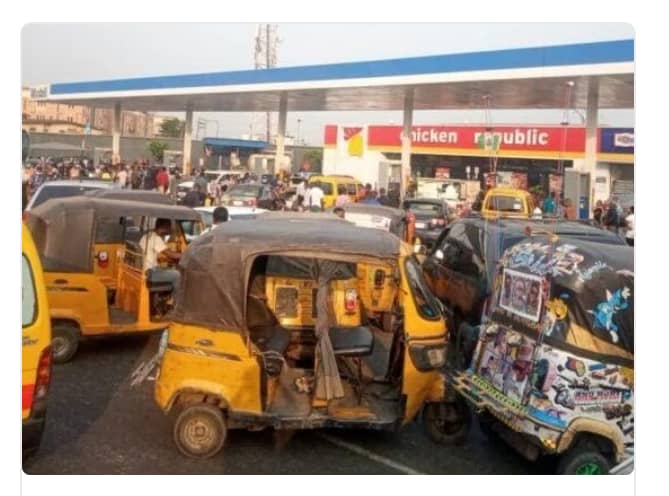The Independent Petroleum Marketers Association of Nigeria, IPMAN stated yesterday that the current petrol scarcity spreading to more states in Nigeria will take at least two weeks to normalize, despite NNPC's claim of having adequate stock.

Chinedu Ukadike, IPMAN's Public Relations Officer, mentioned that the product is unavailable in the country due to challenges in sourcing caused by refinery maintenance in Europe.
He attributed the acute shortage to importation bottlenecks and the slow pace of marketers' license renewals by NMDPRA, with only 1,050 out of 15,000 marketers having their licenses renewed. Ukadike emphasized that once the 30-day supply sufficiency is disrupted, it takes two to three months to restore it.
NNPC's Chief Corporate Communications Officer, Olufemi Soneye, expressed optimism that the long queues will clear soon, stating that the current tightness in supply is due to resolved logistics issues. Similarly, MEMAN's CEO, Clement Isong, assured that queues will be cleared in the coming days as marketers are working round the clock.
The shortage, which initially affected Nasarawa, Niger, and Abuja, has spread to Lagos, Oyo, Osun, and other states, impacting the movement of goods and persons and the nation's economy. In Lagos, motorists faced long queues at filling stations, with some major marketers selling petrol at over N600 per liter, while independent marketers sold it at between N650 and N700 per liter. Some users resorted to buying from the black market at prices ranging from N900 to N1,000 per liter.
Transporters increased fares by 100% to cover the high cost of petrol, with commuters paying more for their journeys. The situation is similar in Kano, where most filling stations were shut, and petrol was sold as high as between N850 and N900 per liter. In Kaduna, the scarcity persisted, with petrol allegedly sold at N1,200 per liter in some areas. Sokoto witnessed a rise in black market prices to N2,000 per liter as many filling stations remained shut.
In Osun, while some filling stations were open, many that did not have petrol were closed, leading to higher costs on the black market. This scarcity has had a significant impact on businesses, especially transport operators, who spend more time queuing for fuel, affecting their arrival times and profit margins. Nonso Ubajaka, President of the Associate of Luxury Bus Owners of Nigeria, emphasized the need for the government to address the problem promptly.
